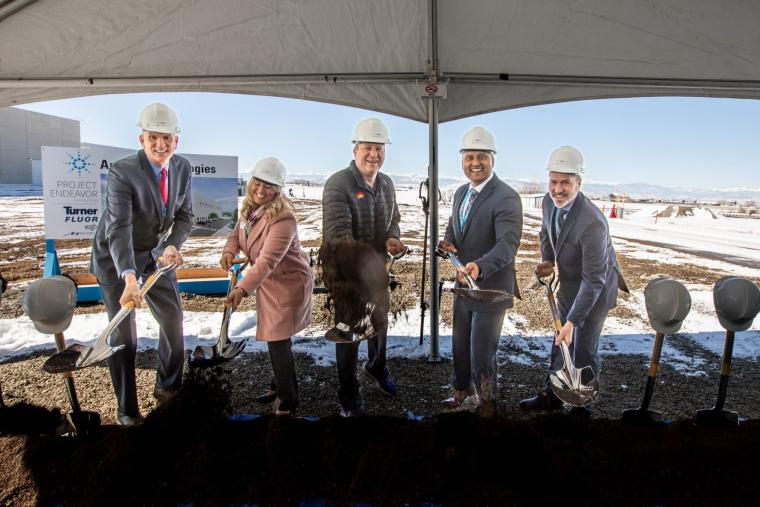
Leaders from Agilent Technologies Inc. joined Colorado Governor Jared Polis and local government officials to break ground on Agilent’s $725 million investment to double manufacturing capacity of therapeutic nucleic acids in Frederick, Colorado.
The investment will create more than 160 life science jobs in the Frederick area; contribute to the state’s rapidly growing biotechnology ecosystem; and increase U.S. manufacturing for active pharmaceutical ingredients (API) that are essential to treating a growing number of diseases, including cancer, cardiovascular disease, and rare and infectious diseases.
“Agilent has had a growing presence in Colorado for more than 20 years. We are very excited about this next phase of investment in this rapidly growing area of biotechnology,” says CEO Mike McMullen. “We’re proud to be helping to drive this growth by creating innovative therapeutics that improve the quality of life.”
Agilent’s manufacturing facilities in Colorado produce siRNA, antisense molecules, and CRISPR guide RNA molecules. The company’s therapeutic nucleic acid contract development and manufacturing organization services offer superior customer service, the highest quality oligo API material, and cGMP (Current Good Manufacturing Practices) to produce high-volume oligos efficiently and cost effectively from early-stage clinical development to commercialization.
“Colorado is proud to be a leader in the biosciences and biotech landscape, and thanks to our world-class institutions of higher education, a highly talented workforce, and innovative spirit, we continue to see this industry grow and thrive,” said Governor Polis. “This exciting expansion will create 160 new good-paying jobs in the Frederick community, and I look forward to seeing the progress that will come from this facility in the future.”
During the groundbreaking ceremony, President of Agilent’s Diagnostics and Genomics Group Sam Raha announced a $25,000 donation to P-TECH, a program at Frederick High School that enables students from underrepresented communities to graduate with associate degrees in the life sciences.
The expansion is expected to be completed by the end of 2026.
